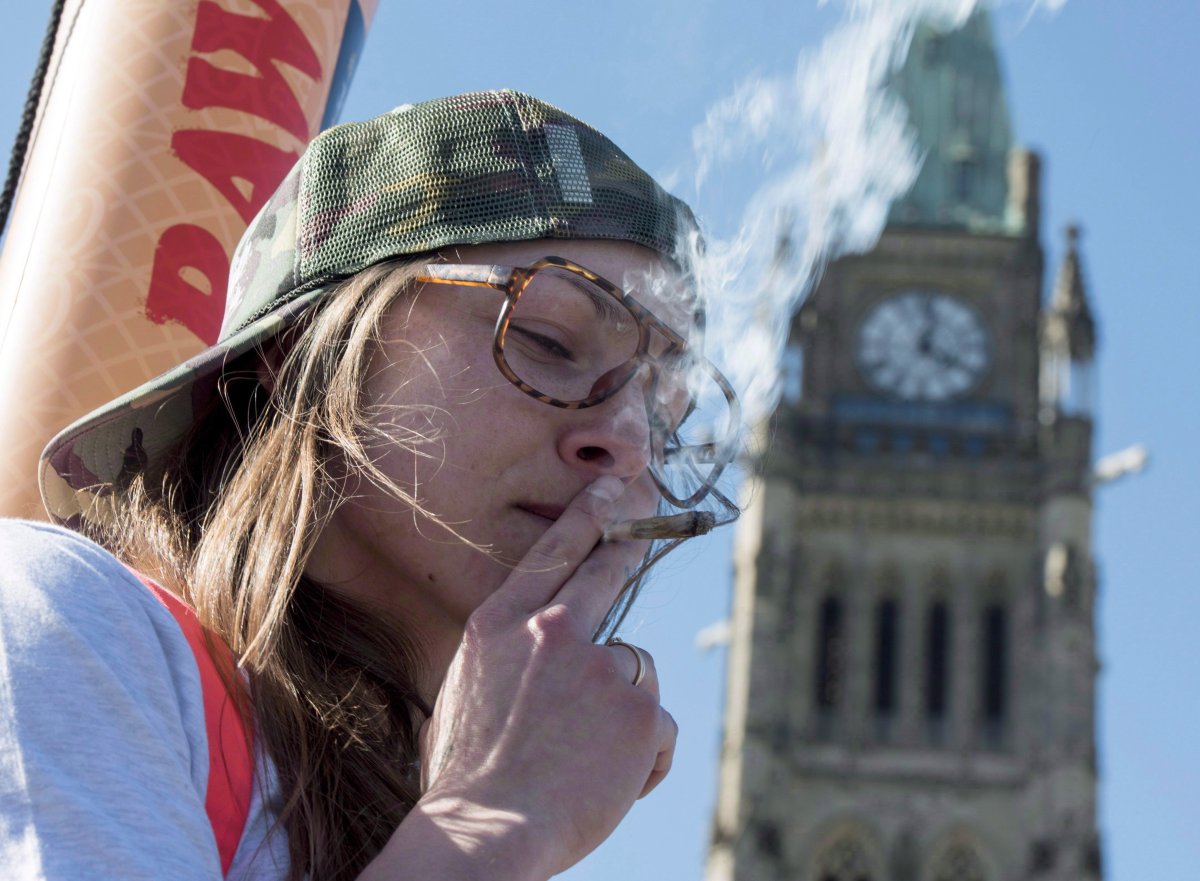Oh cannabis, we stand on guard for thee. By now you know that the Trudeau government plans to make recreational marijuana use legal by July 1, 2018 and is “scrambling” to draft a bill by April 20 — in time for 4/20, the annual event which sees pot enthusiasts gather from all over to consume their drug of choice in public.

On AM640 radio in Toronto, self-proclaimed Prince of Pot Marc Emery crowed about the significance of the two dates.
“It’s exciting to see it actually put down in numbers, that it’s coming out just before our national holiday, April 20, next month … and then on cannabis day 2018 it’ll be legal … we celebrate both those holidays in Canada with lots of celebration with cannabis and so those are appropriate days to introduce the legislation and make it legal.”
Personally, I don’t relish the thought of my seven-year-old standing in a cloud of second-hand marijuana smoke at our local Canada Day celebration, asking me why the maple leaf on the flag has been replaced with a pot plant. If legalizing marijuana is really meant to keep it out of the hands of children, then why plan to make it legal in time for Canada Day, when thousands of kids are congregating on Parliament Hill and other public places with their families?
Marijuana advocates may accuse me of overreacting. (The government had to pick a day, so why not that day?) But that’s the point: Why does legalization have to be planned around that day in particular? Why drag our national holiday into the spectacle, instead of just passing the bill and getting back to business? Is Trudeau planning to toke up on national television, the better to nail down the votes of marijuana enthusiasts?
We are, of course, talking about a government timeline for legislation — the sort of thing that tends to go sideways. Enacting a federal law is just the first step; the provinces will have to deal with the devilish details of point-of-sale, health impacts and law enforcement issues, including a potential increase in cases of driving under the influence.
Trudeau has said he’s “not legalizing marijuana to please recreational users” but to keep pot away from kids and break the grip of organized crime on the business.
“Right now we know that young people have easier access to marijuana than just about any other illicit substance. It’s easier to buy a joint for a teenager than it is to buy a bottle of beer. That’s not right,” Trudeau told reporters in B.C. on March 2.
“Secondly, we know that criminal organizations and street gangs are making billions of dollars off of the sale of marijuana. We feel that regulating it, controlling it, will bring that revenue out of the pockets of criminals and put it into a system where we can both monitor, tax it and ensure that we are supporting people who are facing challenges related or unrelated to drug use.”
The PM protests too much. Yes, Canadian teenagers already smoke more pot than any other kids on the planet — but they’ll still be buying black market marijuana once it’s legal, just like they purchase contraband cigarettes today. And gangs will still be running that business, pricing their product to be cheaper than the regulated, taxed marijuana. It’s economics.
READ MORE: Marijuana legalization could normalize smoking again, experts warn
The true purpose of marijuana legalization is twofold: to court the millennial vote and to reap the kind of tax windfall that has debt-heavy governments salivating. By CIBC’s estimate, legal pot could bring in $5 billion a year for federal and provincial governments. According to Deloitte, the total value of legal weed to Canada’s economy — growing, distribution, paraphernalia, tourism and business taxes — could reach $22.6 billion a year. Those are welcome numbers in a country where deficits are growing, young people can’t find jobs and the renegotiation of NAFTA looms like a black cloud on the horizon.
So why should tackling those priorities get in the way of the all-important promise to legalize pot? Maybe it’s a two-for-one: Governments get out of the red, young people get jobs in legal grow-ops and American tourists pressure Trump to keep the borders open, so they can come up here to party.
Happy Cannabis Day.
Tasha Kheiriddin can be heard between noon and 2 p.m. ET on Toronto Talk Radio AM640. She’s also a columnist with Global News and iPolitics.ca, where this piece first appeared.








Comments